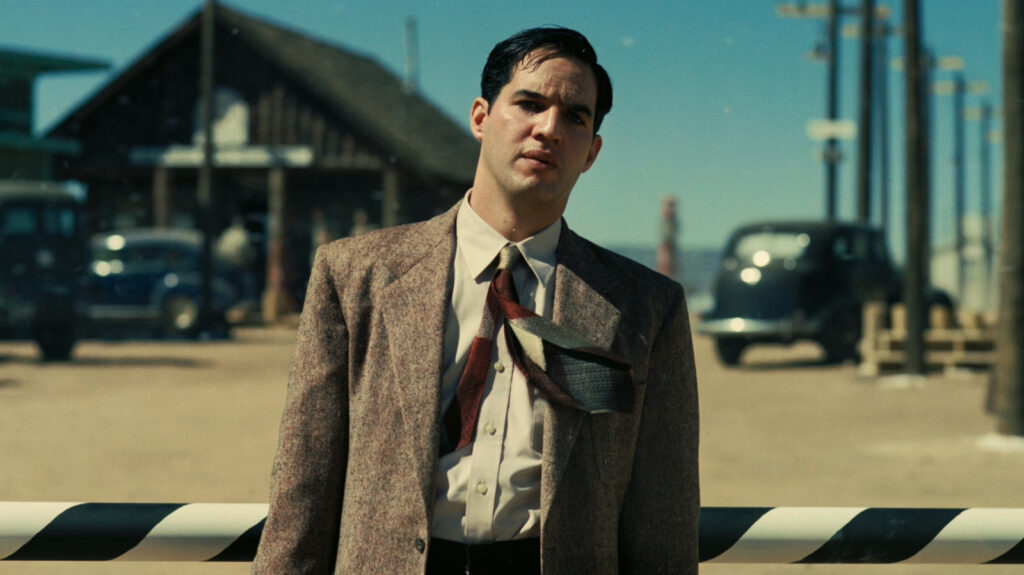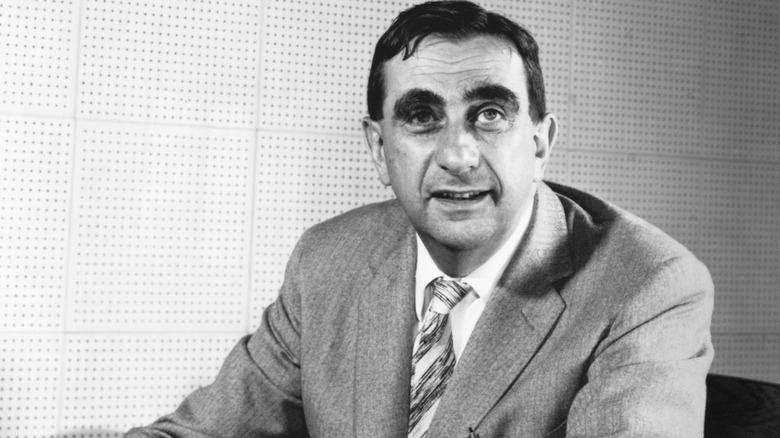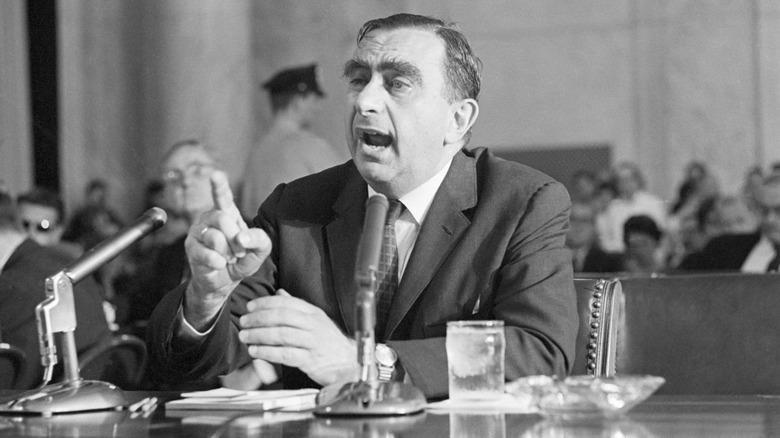“Oppeneheimer” took audiences by storm in the summer of 2023. One of a number of high-profile biopic adaptations released that year, it also created the perfect summer phenomenon by inadvertently creating a double feature with the summer’s other major motion picture, “Barbie.” The film about the mind behind the atomic bomb, J. Robert Oppenheimer, went on to win best picture, best director, and best actor statues at the 2024 Academy Awards.
In “Oppenheimer,” theoretical physicist Edward Teller is one of the scientists the titular scientist enlists to help build an atomic bomb before Germany does. Portrayed in the film by Benny Safdie, Teller has his own ideas regarding what kind of bomb they should be working on, proposing a hydrogen bomb that uses fusion rather than fission, but Oppenheimer isn’t on board. Though Teller doesn’t want to be involved after his proposal is denied, he stays on at the insistence of Oppenheimer. During the flash forward to the trial throughout the movie, audiences see Teller testifying against his boss during his security clearance hearing.
But while Teller is included the acclaimed film, what happened to the scientist after the development of the atomic bomb doesn’t come up. In real life, the Hungarian physicist not only made his fusion bomb a reality, but he also became known as the father of the hydrogen bomb before becoming an outcast in the scientific community.
Edward Teller continued to work toward a fission-fusion bomb
Though J. Robert Oppenheimer didn’t want to work on a fusion bomb, that didn’t deter Edward Teller from pursuing his own goal. The physicist first developed the idea after physicist Enrico Fermi discussed the possibility that a fusion reaction, when combined with hydrogen, could create a bomb. This was in 1941, and Teller continued to think about the idea in the years that followed.
Even after the success of the atomic bomb, which is a fission bomb, Teller still struggled to find support for his work on taking the science one step further with a fusion bomb. As the arms race with Russia became more pronounced in 1949, Teller believed he could gain the necessary momentum to create the “Super bomb” he had theorized about. A council, including Oppenheimer and Fermi, declared that Teller’s model would not work and that the project should not move forward. But while this was a blow to the physicist’s plans, he later received approval from President Truman.
Teller returned to Los Alamos to develop the project, but his calculations still weren’t working. Eventually, with the help of Stanislaw Ulam, a mathematician and physicist, a method for a radiation implosion, now known as the Teller–Ulam design, was developed. Much of the design remains classified, but who contributed what, and how much they contributed, has long been contested by Teller and Ulam. With this new design, a successful hydrogen bomb test, called the Ivy Mike, took place in 1952.
Edward Teller testified against Oppenheimer
After the success of the Ivy Mike detonation, Edward Teller became known as the father of the hydrogen bomb. His public image would shift just two years later in 1954, however, when he testified against J. Robert Oppenheimer during his former boss’ security clearance hearing. Oppenheimer had lost his clearance for a number of reasons, including the belief that he was a spy.
Though Teller was complimentary to Oppenheimer in his statements, particularly about his skill, intellect, and how he had led the Manhattan Project at Los Alamos, he felt that, because Oppenheimer hadn’t supported the development of the fusion bomb, he was not the best person to further the country’s interests. “I thoroughly disagreed with him in numerous issues and his actions frankly appeared to me confused and complicated,” Teller said during his testimony. “To this extent I feel that I would like to see the vital interests of this country in hands which I understand better, and therefore trust more.”
Oppenheimer did not have his security clearance reinstated at the end of the trial, and Teller was ostracized by his fellow scientists for his perceived role in that. The Hungarian physicist, left to defend himself over his testimony, later tried to show his support for Oppenheimer by nominating him for the Enrico Fermi Award in 1963, which the scientist did receive. The ruling against Oppenheimer was ultimately vacated in December 2022, though neither he nor Teller, who died in 1967 and 2003, respectively, lived to see it happen.



